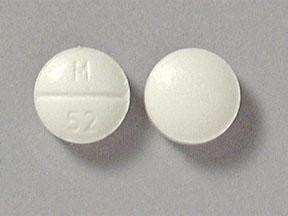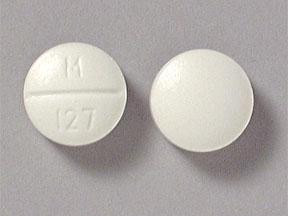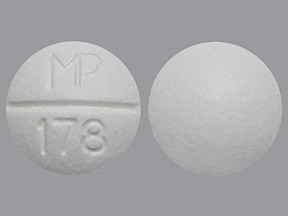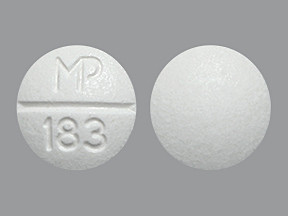PINDOLOL - ORAL
PHONETIC PRONUNCIATION: (PIN-doe-lol)
COMMON BRAND NAME(S): Visken
GENERIC NAME(S): pindolol
Uses
USES: This medication is used alone or with other medications to treat high blood pressure. Lowering high blood pressure helps prevent strokes, heart attacks and kidney problems. Pindolol belongs to a class of medications called beta-blockers. It works by blocking the effects of certain natural substances (such as epinephrine) on the heart and blood vessels. This results in a lowering of the heart rate, blood pressure, and strain on the heart.
How to use PINDOLOL - ORAL
HOW TO USE: See also Warning section. Take this medication by mouth with or without food, usually twice daily or as directed by your doctor. The dosage is based on your medical condition and response to therapy. It may take 1-2 weeks before the full benefit of this drug takes effect. It is important to continue taking this medication even if you feel well. Most people with high blood pressure do not feel sick. Use this medication regularly in order to get the most benefit from it. To help you remember, use it at the same times each day. Inform your doctor if your condition persists or worsens (e.g., routine blood pressure readings increase).
Side Effects
Precautions
Interactions
Overdose
Images
Reviews
Faq for PINDOLOL - ORAL
Pindolol is an oral medication used to treat high blood pressure (hypertension) and certain heart conditions, such as angina (chest pain) and irregular heartbeat (arrhythmia).
Pindolol belongs to a class of medications called beta blockers. It works by blocking the action of certain natural chemicals in the body, such as adrenaline, to reduce heart rate, blood pressure, and workload on the heart.
Common side effects of Pindolol may include nausea, dizziness, tiredness, diarrhea, decreased sexual ability, and cold hands or feet. Consult with your doctor if these side effects persist or worsen.
Pindolol is usually taken orally by mouth, with or without food. The dosage and frequency will depend on your medical condition and response to the treatment. It is important to follow your doctor's instructions carefully.
No, you should not suddenly stop taking Pindolol without consulting your doctor. Suddenly stopping this medication may worsen your condition or cause withdrawal symptoms. Your doctor may gradually reduce the dosage to safely stop the medication.
Pindolol may interact with other medications, including certain antidepressants, MAO inhibitors, anticoagulants, and various heart medications. Inform your doctor about all the medications you are currently taking to avoid any potential drug interactions.
It is important to discuss the risks and benefits of using Pindolol during pregnancy or breastfeeding with your doctor. The medication may pass into breast milk and may have potential risks to the unborn baby, so caution is advised.
If you miss a dose of Pindolol, take it as soon as you remember. However, if it is close to the time for your next dose, skip the missed dose and resume your regular dosing schedule. Do not double the dose to catch up.
Yes, allergic reactions to Pindolol are possible. Seek immediate medical attention if you experience symptoms such as rash, itching, swelling, severe dizziness, or difficulty breathing after taking Pindolol.
Warning
WARNING: Do not stop taking this medication without consulting your doctor. Some conditions may become worse when you suddenly stop this drug. Some people who have suddenly stopped taking similar drugs have had chest pain, heart attack, and irregular heartbeat. If your doctor decides you should no longer use this drug, he or she may direct you to gradually decrease your dose over 1 to 2 weeks. When gradually stopping this medication, it is recommended that you temporarily limit physical activity to decrease strain on the heart. Get medical help right away if you develop chest pain/tightness/pressure, chest pain spreading to the jaw/neck/arm, unusual sweating, trouble breathing, or fast/irregular heartbeat.
Disclaimer
IMPORTANT: HOW TO USE THIS INFORMATION: This is a summary and does NOT have all possible information about this product. This information does not assure that this product is safe, effective, or appropriate for you. This information is not individual medical advice and does not substitute for the advice of your health care professional. Always ask your health care professional for complete information about this product and your specific health needs.





No Reviews Yet